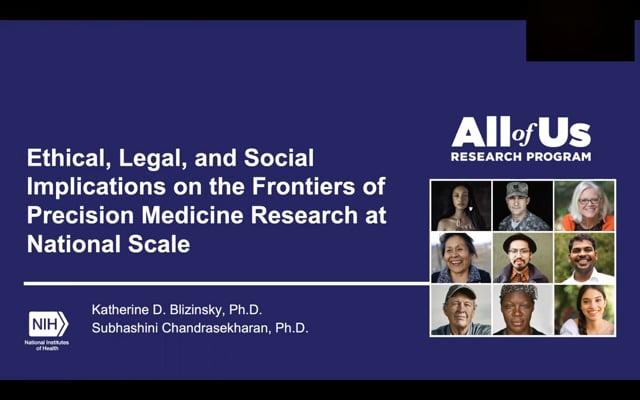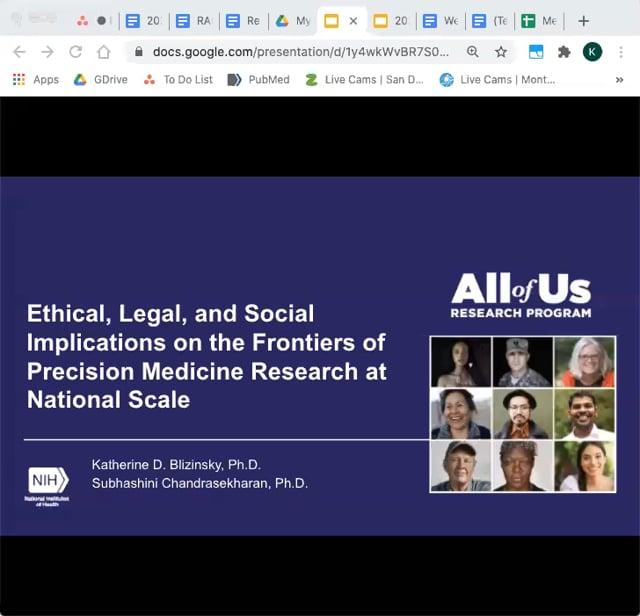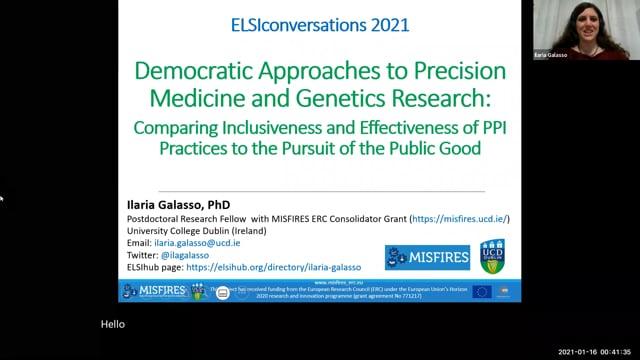Developing Pathways for Community-led Research with Big Data: A Content Analysis of Stakeholder Interviews
Megan Doerr, MS, LGC - Sage Bionetworks & Joon-Ho Yu, MPH. PhD - University of Washington
ELSIconversations - March 5, 2021
Big data (BD) informs nearly every aspect of our lives and, in health research, is the foundation for basic discovery and its tailored translation into healthcare. Yet, as new data resources and citizen/patient-led science movements offer sites of innovation, segments of the U.S. population with the lowest health status are least likely to engage in BD research either as intentional data contributors or as “citizen”/community scientists. The aims of this study are to capture uses of BD (“use cases”) from the perspectives of community leaders and to identify needs and barriers for enabling community-led BD science. We conducted a qualitative content analysis of semi-structured key informant interviews with 16 community leaders. Based on our analysis findings, we developed a BD Engagement Model illustrating the pathways and various forces for and against community engagement in BD research. The goal of our Model is to promote concrete, transparent dialogue between communities and researchers about barriers and facilitators of authentic community-engaged BD research. Findings from this study will inform the subsequent phases of a multi-phased project with the ultimate aim of organizing fundable frameworks for BD projects within community settings.
Tags
Videos in Series
-
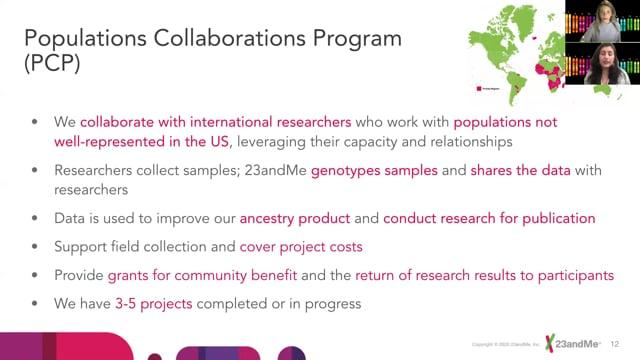
ELSIconversations 1: ELSIcon2020 - A Prospectus on Ethical Issues in the Context of Collaborations Between Academic and Non-academic Institutions on Genetics Research
-
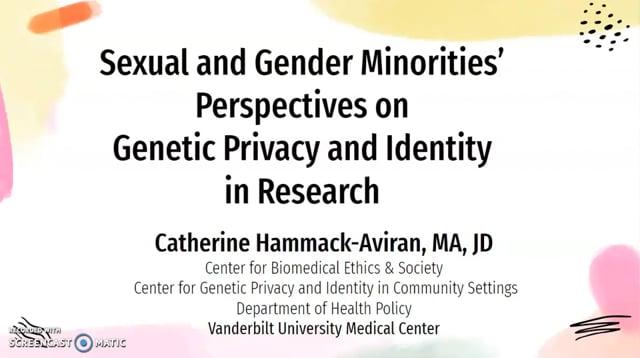
ELSIconversations 1: ELSIcon2020 - Sexual and Gender Minorities’ Perspectives on Genetic Privacy and Identity in Research
-
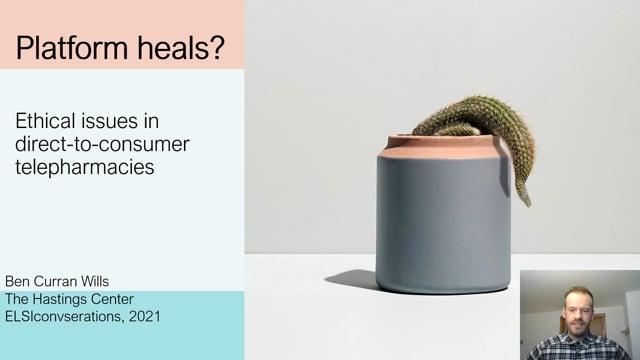
ELSIconversations 1: ELSIcon2020 - Platform Heals? Ethical Issues in Direct-to-consumer Telepharmacies
-
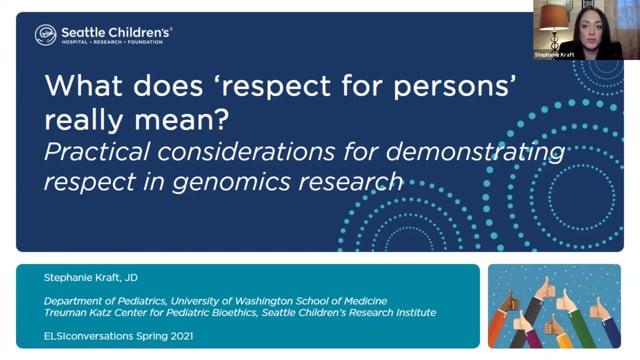
ELSIconversations 1: ELSIcon2020 - What does ‘respect for persons’ really mean? Practical considerations for demonstrating respect in genomics research
-
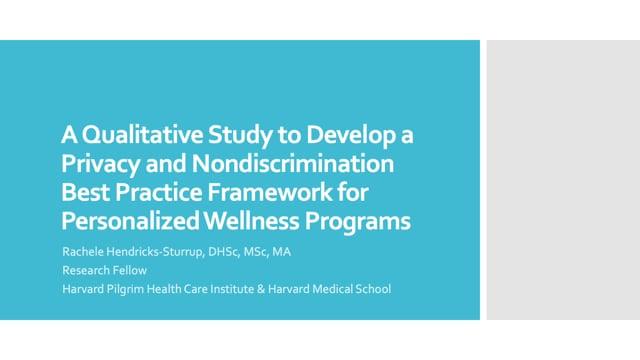
ELSIconversations 1: ELSIcon2020 - A Qualitative Study to Develop a Privacy and Nondiscrimination Best Practice Framework for Personalized Wellness Programs
-
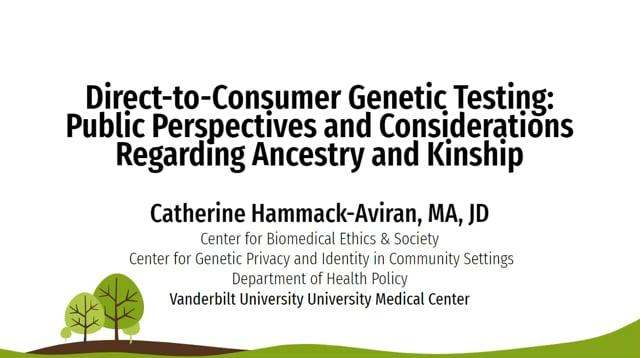
ELSIconversations 1: ELSIcon2020 - Direct-to-Consumer Genetic Testing: Public Perspectives and Considerations Regarding Ancestry and Kinship
-
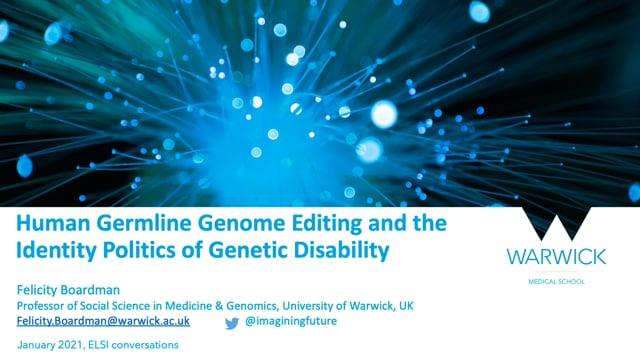
ELSIconversations 1: ELSIcon2020 - Human Germline Genome Editing and the Identity Politics of Genetic Disability
-
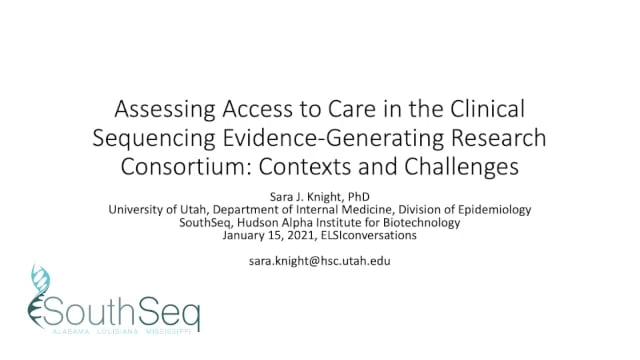
ELSIconversations 1: ELSIcon2020 - Part 4. Assessing Access to Care in the Clinical Sequencing Evidence-Generating Research Consortium: Contexts and Challenges
-
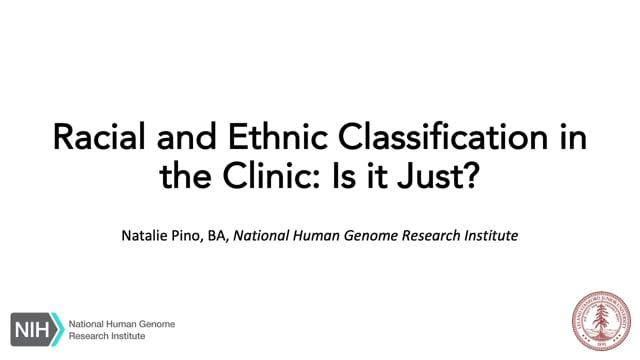
ELSIconversations 1: ELSIcon2020 - Racial and Ethnic Classification in the Clinic: Is it Just?
-
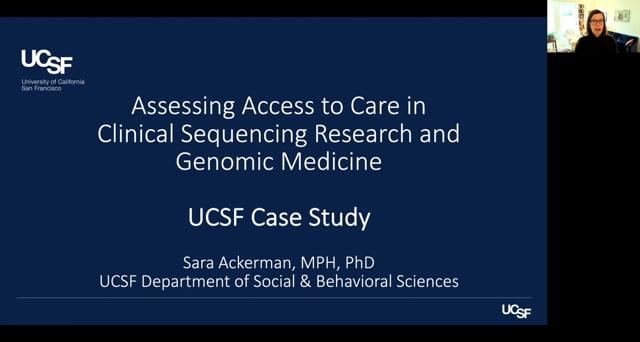
ELSIconversations 1: ELSIcon2020 - Part 3. Assessing Access to Care in the Clinical Sequencing Evidence-Generating Research Consortium: Contexts and Challenges
-
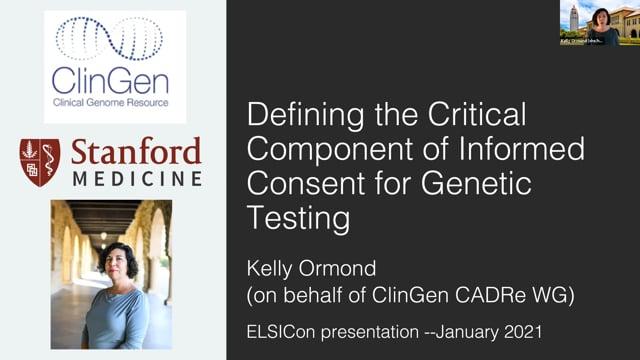
ELSIconversations 1: ELSIcon2020 - Defining the Critical Components of Informed Consent for Genetic Testing
-
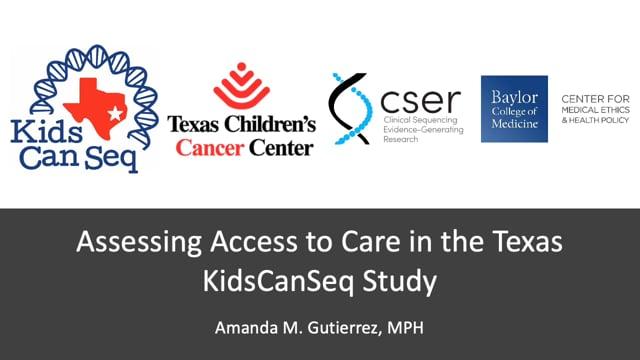
ELSIconversations 1: ELSIcon2020 - Part 2. Assessing Access to Care in the Clinical Sequencing Evidence-Generating Research Consortium: Contexts and Challenges
-
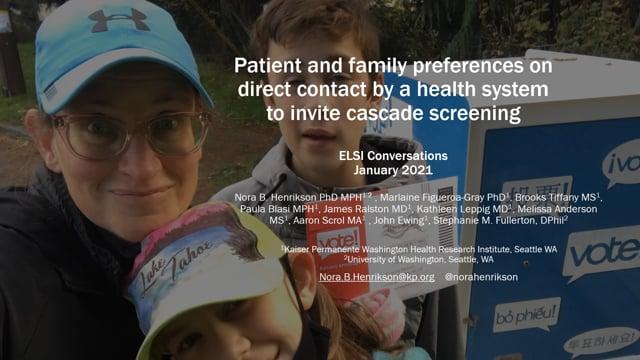
ELSIconversations 1: ELSIcon2020 - Patient and family preferences on direct contact by a health system to invite cascade screening
-
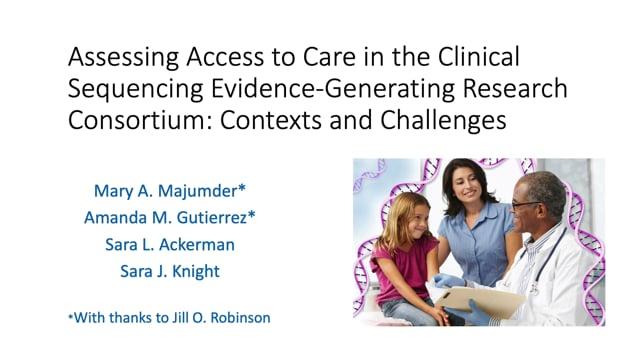
ELSIconversations 1: ELSIcon2020 - Part 1. Assessing Access to Care in the Clinical Sequencing Evidence-Generating Research Consortium: Contexts and Challenges
-
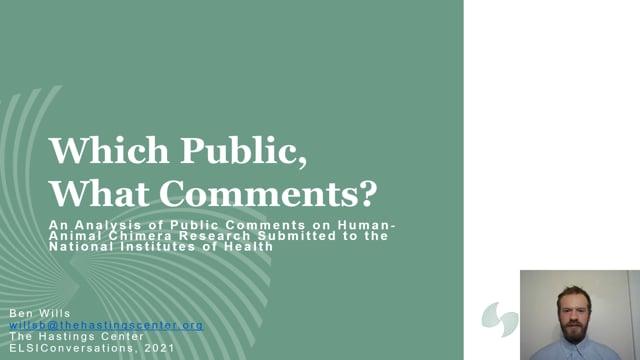
ELSIconversations 1: ELSIcon2020 - Which Public, What Comments? An Analysis of Public Comments on Human-Animal Chimera Research Submitted to the National Institutes of Health
-
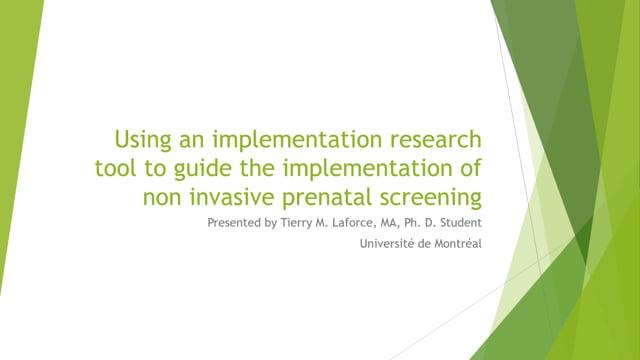
ELSIconversations 1: ELSIcon2020 - Using an implementation research tool to guide the implementation of non-invasive prenatal screening

